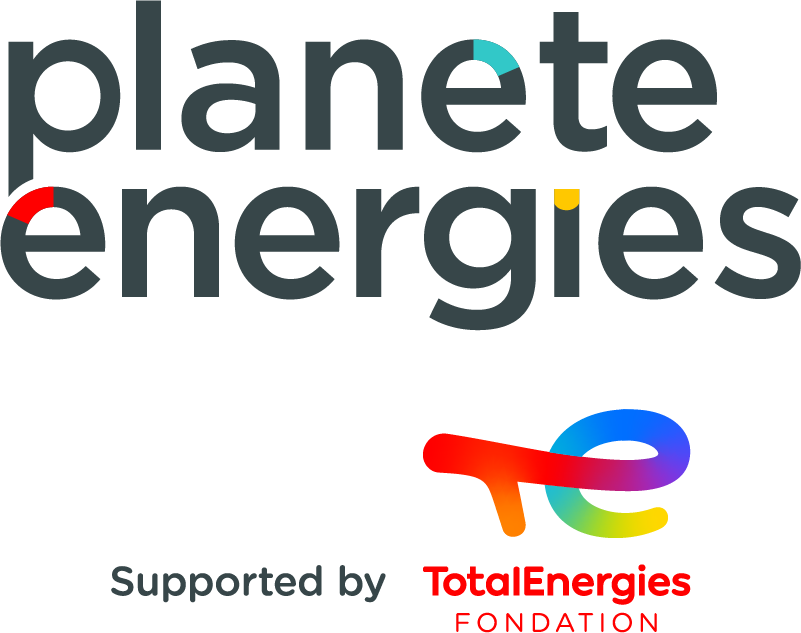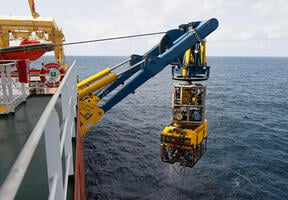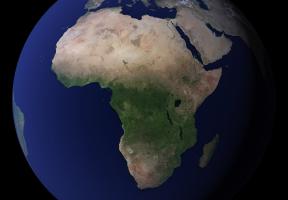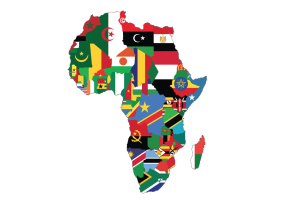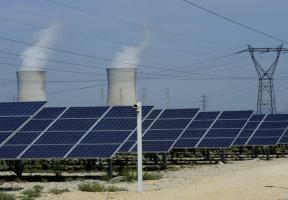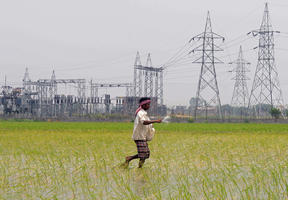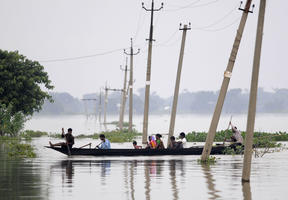COP28: what results?
5 min read
COP28, held in Dubai from November 30 to December 12, 2023, recognized for the first time the need for a "transition away from fossil fuels". Its organizers consider this a "historic" compromise. But many NGOs (non-governmental organizations) criticize the complexity and ambiguity of the terms used. They doubt its effectiveness in containing the rise in the planet's average temperature.
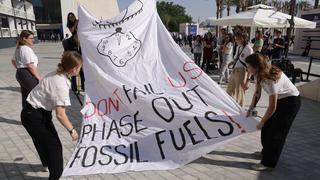
© GETTY IMAGES VIA AFP - Climate activists at COP28 in Dubai
The beginning of the end for fossil fuels?
Reminder
According to scientific studies accepted by all countries, is essentially due to greenhouse gas emissions, three-quarters of which are caused by fossil fuels ( , oil and gas). COP26 in Glasgow lifted a taboo when it spoke of the need to "reduce" the use of coal and public subsidies for the exploitation of fossil fuels. It did not go so far as to talk about a "phase-out" of fossil fuels. COP27 remained evasive. Would COP28 take the plunge?
Result
The 200 or so countries gathered in Dubai did a little better: still no "exit", but a "transition away from fossil fuels". The text adopted called for "accelerated action" to achieve carbon neutrality by 2050 and limit global warming to +1.5°C this century (see our article "Towards carbon neutrality in 2050"). Targets which, according to the experts, will not be met without a real shift away from fossil fuels. UN
Executive Secretary Simon Stiell, sees the positive side of these ambiguous phrases:
Triple renewable energies
Reminder
To achieve a successful " ", the calls for a shift away from fossil fuels, and the development of renewable energies and nuclear . But it also calls for improved , and for businesses and citizens to adopt greater sufficiency (see our article "Sufficiency to Save the Planet").
Result
COP28 called for "tripling global
capacity and doubling the global average annual rate of energy efficiency improvement by 2030". These recommendations are not problematic. The largest
emitting countries (China, United States, and India) are also those installing the most wind and solar farms, hydroelectric plants and nuclear power plants.
The Dubai meeting also called for the acceleration of green
production and carbon capture and storage technologies. This last point worries environmentalists, who see it as an excuse not to move away from fossil fuels altogether.
Helping developing countries
Reminder
The subject of aid to the least developed countries comes up at every COP. Although they are only lightly industrialized, they are much less responsible for the accumulation of greenhouse gases than the countries that launched the industrial revolution in the 19th century. Back in 2009, COP15 in Copenhagen launched the "Green Climate Fund" to help these countries take action without blocking their economic growth.
Result
The Green Fund's resources have been incresased. A new "Loss and Damage Fund" has been created to support vulnerable countries already affected by the consequences of global warming, such as floods and droughts. In a sign that global warming is already noticeable, 66 countries have adopted the "Global Cooling Pledge" to reduce emissions from cooling systems. The development of energy-hungry air conditioners has become a global problem.
COP29 Climate Change Conference in Baku
While COP28 marked a turning point by recognizing the need for a “transition away” from fossil fuels, the international community now turns its attention to COP29, to be held in Baku, Azerbaijan, from November 11th to 22nd , 2024. This Climate Change Conference will address major issues such as the financing of climate action and the commitment of States to revise their national contributions to mitigate the effects of climate change.
